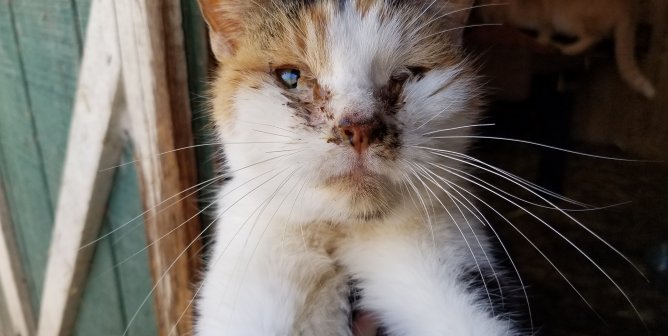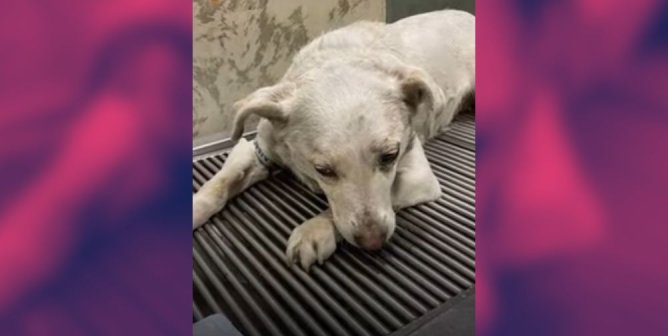Danica’s Misery: Another Golden Retriever Suffers in a Texas Laboratory
Update (November 4, 2022): VICTORY! Texas A&M University has confirmed that it will release the nine healthy golden retrievers it had transferred from its failed canine muscular dystrophy laboratory to the veterinary school!
This momentous news comes after PETA’s hard-fought campaign that began with our shocking exposé of the school’s deplorable laboratory. Our relentless pressure ended its cruel breeding of dogs to develop this crippling disease and led to the release of more than 50 dogs.
But we never gave up on these nine betrayed golden retrievers. We campaigned hard—and now the dogs will be in homes before the end of the year.
You can read more about our win for the nine dogs here.
Originally posted on October 23, 2017:
Dogs purposely bred by experimenters to develop muscular dystrophy (MD) are doomed to a life of barren enclosures, crippling symptoms, and painful procedures. This was Danica’s life.
“Unseen they suffer, unheard they cry, in agony they linger, in loneliness they die.”

In 2010, the black golden retriever was born inside a laboratory at the University of North Carolina, where a colony of dogs used for breeding and MD experimentation was imprisoned. It didn’t take long for the disease to begin ravaging her body.
Picture a 7-month-old puppy. Images of a young dog exuberantly running and playing come to mind, right?
Documents show that life for Danica was far different. At that age, she was unable even to sit up straight. Because of the muscle weakness that plagued her, the most that she could manage was lying on her chest with her legs spread out. She was too weak to stand. Her jaw could not open fully, and excessive saliva dripped from her mouth.
Laboratory notes from this time report that she vomited blood, experienced labored breathing, and suffered from an irregular heart rhythm. Another note describes her as “abnormally very quiet and not eating.” And then there’s this particularly sad description of her: “[i]solated in corner of run.”
But this was just the beginning of Danica’s misery.
Despite her poor condition, she was transported to Joe Kornegay’s laboratory at Texas A&M University (TAMU), where she was slated for experimentation. When she was just under 3 years old, she underwent general anesthesia in preparation for an MRI. But her heart, weakened by the disease that she was purposely bred to develop, couldn’t handle the anesthetics. Her breathing became erratic, and her heart rate plummeted. During recovery after this episode, she was able to breathe only with great effort and was noted to be depressed.
When she was close to 4 years old, her health deteriorated even further. Fluid accumulated in her stomach, a condition that causes pain, bloating, and shortness of breath. Her heart had enlarged, and fluid was also building up in her lungs, likely causing chest pain, difficulty breathing, and lethargy. Any physical movement would have been agony for her.
When beloved animal companions reach this stage of decline, their suffering is usually relieved through euthanasia, a final act of kindness. But at TAMU, Danica was seen as an experimental tool. So before she was killed, experimenters forced her to endure an electrocardiogram and a cardiac MRI.
Danica was just one of the many dogs that Joe Kornegay has subjected to cruel and pointless canine MD experiments at TAMU, where dogs continue to be bred and tormented. Thirty-five years of this “research” has yet to produce a cure or even a treatment to reverse symptoms of the disease in humans.
It’s time to put an end to this. No dog should suffer as Danica, Jelly, Peony, and Buckley did. And human MD patients deserve research methods that could finally lead to the breakthroughs that they so desperately need.
What You Can Do
Please urge TAMU to close its dog laboratories, stop breeding MD-afflicted dogs, release all dogs for adoption into good homes, and redirect resources toward humane research methods.



